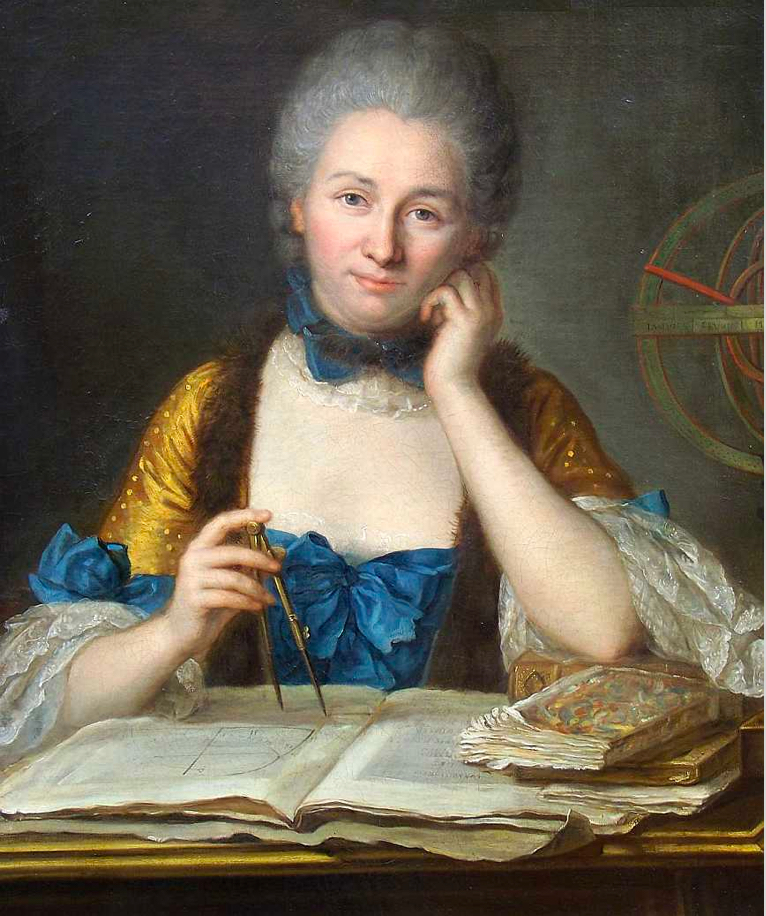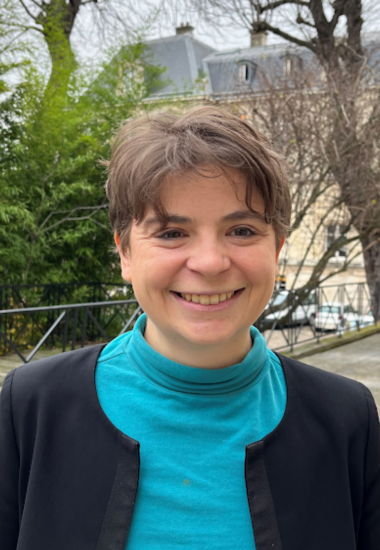
Why a career in tech?
To simplify, facilitate, progress but also to
understand, better observe and help to decide.
Technology is not an end in itself. It is helpful to
make society or is not. I remember a passionate
discussion with a CNRS researcher during my
Master 2 telling me: «technology don’t make thing
easy for your modeling: it doesn’t work, your
model is wrong, it works, you don’t wrong yet».
Your professional experience?
I have a phD in computer sciences with a specialty in
Natural Language Processing. I have always navigated
between several very complementary scientific
disciplines such as linguistics, signal processing and
computer sciences. From a bachelor’s degree rather
oriented in human and social sciences with a minor in
computer science, I ended up defending a thesis in
computer science after a Master’s degree in Language
Industry… From there, my jobs has consisted in building
the trust in so-called Artificial Intelligence systems.
After a stay at the Stanford Research Institute as a guest
researcher, I joined the Laboratoire National de
Métrologie et d’Essais. I worked on the definition and
implementation of protocols for evaluating the
performance of information retrieval systems, robots,
autonomous vehicles: everything that includes AI today.
At that time, my job aims at define the best method
regarding the level of maturity of the technology, from
the first tests to their future production… The work that
I carried out at the IRT SystemX at this period reflect
this challenge. For example, it was necessary to propose
the first simulation tests for autonomous vehicles. And
the systems have made further progress, opening up
real application opportunities. I then joined the French
Administration to contribute to the digital
transformation of Public Services as an Engineer of the
Corps des Mines.
Your first experience with technology?
Code for research projects while I was in Master:
websites first front then back, databases managing
relational then non-relational… So as to better
understand language and human-machine interactions.
I then discovered the industrialization challenge,
another adventure.
What do you do today, and why?
Currently, I am in charge of the transformation of a
support department through data analysis as deputy
director. This mainly consists of managing digital
transformation projects: choosing the right products is
only a very small part of the job, it is above all a
question of thinking about the impacts of these new technologies on our ways of working, of supporting
change through a learning offer and an adequate skills
assessment. I like this job because it involves combining
technical and human resources in order to better serve
the public policies.
Your strengths in this role?
My energy, my resilience and my “helicopter” capacity:
going into a crucial technical detail with passionate
teams and just after negotiating a strategy.
Past challenges, failures and disappointments?
Make people understand what is beyond the buzz word
“AI”. Today, everyone says he is doing AI. But why ?
how ? What is really the break or the impact of these
technologies? When is it worth investing? I regularly
have to answer these questions. And each time, it’s a
challenge: Make people understand that the right
strategy must sometimes go into technical details
because that’s where the added value lies. These
elements, a decision maker does not always have the
time to take them into consideration. My challenge is to
make these elements intelligible both for the decision-
makers but also to explain to the technical guys why
this has not been understood and how we are going to
have to find other solutions…
Best moments, successes you’re proud of?
Exchanges with technical communities: bring about an
agreement between industrialists, academics,
representatives of civil society. Compare points of view
on a subject and come up with a concrete improvement
project. In recent years, it has always been a policy of
small steps: one improvement after another. But in the
end, after a few years, I tell myself that we have built
solutions on safe foundations.
People who helped, influenced -or made your life difficult?
My colleagues: all the projects I have carried out have
been the result of teamwork. I learned from contact
with each of them, whether they supported me in my
choices or, on the contrary, clearly explained their
disagreement with me.
Your hopes and future challenges?
There are many things to do in my field. A real question,
for me, deals with the emergence of new French and/or
European digital leaders. Will the Europeanmodel
through its latest texts retain the talents? For the Public Service, it is also a question of consolidating its digital
strengths. I hope to continue contributing.
What do you do when you don’t work?
I run, I play board games and I participate in wine
tastings. The head, the legs, the pleasure in the
technicality.
Your heroes -from History or fiction?
It’s a difficult question because I like daily heroes: those
who get up in the morning to do what they have to do
because they think that’s what they have to do. And I
have met many such heroes. Thanks to them.
A saying or proverb you like in particular?
“Cultivate your garden” as Candide says: do what
you are able to do.
A book to take with you on a desert island?
“Sophie’s World” by Jostein Gaarder. I read it every
5 years since I was 18 and each time I draw new
thoughts from it.
A message to young female professionals?
Trust in yourself, try and choose your chefs well!

